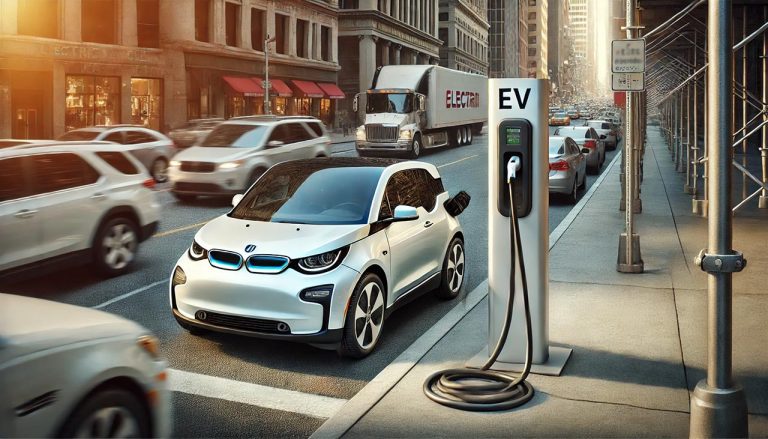
Electric vehicles (EVs) are hailed as an environmentally friendly solution to the climate crisis, providing passengers with a smooth, emission-free ride. [emphasis, links added]
But the electricity revolution – considered crucial to curbing carbon emissions – appears to have run its course.
MailOnline's chart [below] revealed Global EV sales from the three top manufacturers have slumped in recent months as the public struggles to fall in love with the technology.
Despite strong long-term growth momentum, quarterly sales of Elon Musk's Tesla electric cars fell from a peak of 484,500 units in the fourth quarter of 2023 to 386,800 units in the first quarter of 2024.
Meanwhile, Chinese automaker BYD, the world's largest seller of electric vehicles, saw a sharp decline in global EV sales earlier this year.
In the first quarter of this year, BYD's electric vehicle sales were slightly more than 300,000 units, far lower than the 526,000 units in the fourth quarter of last year.
Similarly, German automaker Volkswagen sold 239,500 electric vehicles in the fourth quarter of 2023, but only 136,400 in the next quarter, although sales recovered to 180,800 in the second quarter of this year.
Meanwhile, Volkswagen has been forced to close three plants and cut jobs, in part because of a slower-than-expected transition to electric vehicles.

Why are electric car sales declining?
Two experts claimed that there is a “clear downward trend” in the global electric vehicle market.
Electric cars, like smartphones, run on rechargeable batteries, but are expensive – the average price in the UK is around £46,000.
Milad Haghani, lecturer in urban analysis at the University of New South Wales, Sydney, and Hadi Ghaderi, professor of supply chain at Swinburne University of Technology, said in an article in The Conversation, “The upfront cost of electric vehicles is usually higher.
“Sales have slowed in parts of Europe and the U.S., typically due to reduced incentives, but sales in other regions such as China and India continued to grow strongly.”
Two experts said “the influx of cheap Chinese cars” is lowering the cost threshold. However, these eastern exports raise surveillance concerns.
The researchers noted that another “major issue” facing car buyers is the uncertainty about the resale value of electric models compared with standard petrol or diesel models.
“Consumers are concerned that electric vehicles will degrade more quickly than conventional vehicles…these concerns are particularly related to battery degradation, which can impact a vehicle's range and performance over time.”
Meanwhile, electric vehicle fires have made global headlines — including a high-profile battery fire in a South Korean parking lot in August — raising concerns among consumers. …shear…
What are the problems with electric vehicles?
Like any emerging technology, the transition to electric vehicles won’t be without its problems — and it’s not just the race to roll out charging infrastructure.
The public is also worried about running out of battery while traveling, although research is looking at ways to prevent this from happening.
Electric cars also don’t solve the problem of tire wear, which causes tiny rubber particles invisible to the naked eye to enter our lungs.
Actually, Rubber particle contamination may end up being worse in electric vehicles because their tires put more pressure on the road due to the sheer weight of lithium-ion batteries.
Read emails online and take a break
